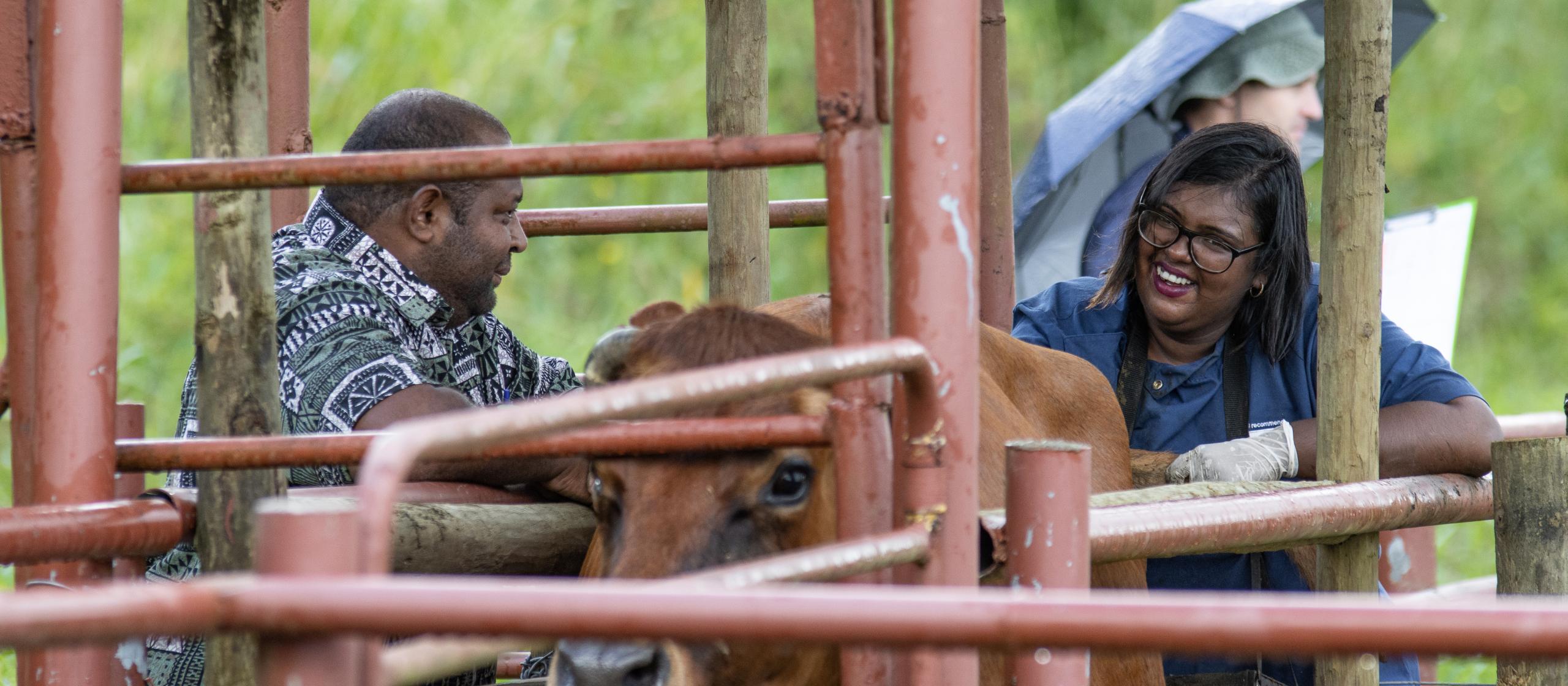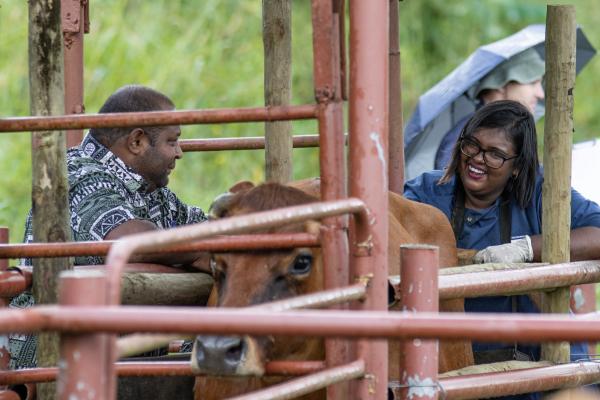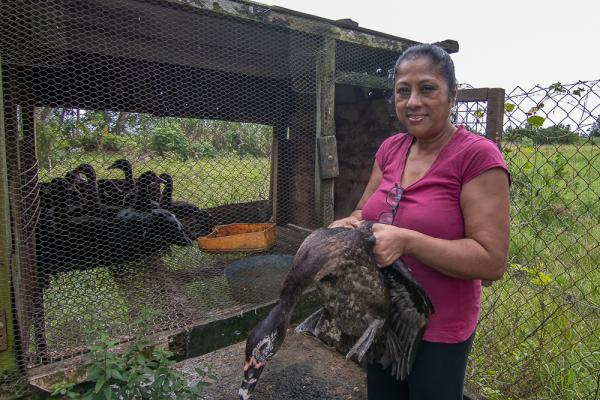- HomeHome
-
About ACIAR
- Our work
- Our people
-
Corporate information
- ACIAR Audit Committee
- Commission for International Agricultural Research
- Policy Advisory Council
- Agency reviews
- Executive remuneration disclosure
- Freedom of information (FOI)
- Gifts and benefits register
- Information publication scheme
- List of new agency files
- Contracts
- Legal services expenditure
- Privacy impact assessment register
- Commonwealth Child Safe Framework
- Benefits to Australia
- Careers
- 40 years of ACIAR
-
What we do
- Programs
- Cross-cutting areas
- Resources
- Where we work
-
Funding
- Research projects
- Fellowships
-
Scholarships
- John Allwright FellowshipScholarships to study in Australia for ACIAR partner country scientists to have Australian postgraduate qualifications
- ACIAR Pacific Agriculture Scholarships and Support and Climate Resilience Program
- Alumni Research Support Facility
- Publications
- News and Outreach
Date released
12 June 2020
Fiji has led Pacific island nations in embracing a One Health approach to the emerging problem of diseases resistant to standard antimicrobial drugs. The island nation is now partnering with Australia to put its antimicrobial action plan into practice.
Around 75% of emerging infectious diseases behind epidemics like COVID-19 are caused by ‘zoonotic’ microorganisms—viruses, bacteria and other parasites that can be transmitted between humans and animals (most often livestock).
This ability to adapt to new hosts is not the only trait microorganisms use in their quest to survive. They can also rapidly mutate after encountering antibiotic, antiviral or antimalarial drugs to transform future generations of themselves into antimicrobial-resistant organisms, or ‘superbugs’.
Because superbugs render standard antimicrobials ineffective, the risk of health complications and death to patients and animals is increased and the range of possible treatments is narrowed to a handful of ‘antimicrobials of last resort’.
The ultimate aim is for Fiji to develop a One Health model for addressing antimicrobial resistance, with other Pacific island nations benefiting from the lessons learned along the way.
It is an arms race that, at the moment, microorganisms seem to be winning. Not surprisingly, the World Health Organization and leading health and biosecurity agencies have identified antimicrobial resistance (AMR) as an urgent threat to human and animal health globally.
One Health, many dimensions
Understanding how microbiota in humans, livestock, other animals and the environment interact is the key to improving management of issues like AMR, zoonotic disease and food safety.
This One Health integrated systems approach is at the heart of nine research projects jointly funded by the Australian Government’s Indo-Pacific Centre for Health Security and ACIAR, in partnership with Fiji, Papua New Guinea, Indonesia, Cambodia, Laos and Vietnam.
‘One Health recognises that, as with many complex problems, if you just approach it from one angle you’re unlikely to have a long-term or significant impact,’ says Dr Francette Geraghty-Dusan, Associate Research Program Manager of One Health at ACIAR.
‘That’s because there are a lot of components that need to be thought about and that interact with each other to create the problem in the first place.
‘The One Health approach is about people with different mindsets and from different backgrounds working together. It takes commitment and investment in time to build strong relationships and trust.’
Dr Dusan says partnerships are the focus of the nine ACIAR–DFAT One Health research projects, with project leaders needing to ensure all stakeholders have been identified and are on board before the project can start in earnest.
Fiji’s AMR problem
Dr Walter Okelo, a CSIRO researcher with an interest in the socio-economic impacts of AMR, is leading one of the One Health projects which aims to help Fiji sustainably manage the growing threat of AMR in its hospitals, farms, local communities, waterways and environment.
The CSIRO team is partnering in the project with the Government of Fiji and researchers from the University of Technology Sydney, the University of South Australia, the University of the South Pacific and Fiji National University.
Fiji was the first Pacific nation to develop a national AMR action plan. This is now being implemented by a national antimicrobial resistance committee (NARC) whose members represent government, private sector and community agencies involved in health, agriculture, biosecurity, pharmacy, education, finance and the economy, and the environment.
Fiji’s widespread use of antibiotics and antimicrobials is well documented. Its hospitals have some of the highest rates of bacterial infections in the world, partly due to the high incidence of tuberculosis infections (in both humans and animals) and diabetes related amputations.
Compounding the problem is the fact Fijian authorities have limited control over the provenance, quality and safe use of antibiotics and other antimicrobials.
Products are sourced from different countries and manufacturers by the government and separately by private wholesalers, and are often stored in hot and humid conditions without refrigeration, reducing their potency.
Dr Okelo says microbes exposed to poor-quality or improperly administered antimicrobial drugs can develop resistance within days ‘and the more antibiotics you use, the more you select for resistant organisms’.
Baseline surveillance
One of the first tasks facing Dr Okelo’s team is addressing the lack of reliable baseline surveillance data on AMR and antimicrobial use in Fiji.
‘At the moment no one knows the magnitude of the problem because there is little research that has been done to date,’ says Dr Okelo. ‘If you don’t have people who can do the detection work quickly, the response is going to be slow, as we’ve seen with COVID-19. That leads to more deaths and ineffective use of resources.’
The team is working with researchers at the Fiji National University and the University of the South Pacific to build local capacity in both diagnostics and the collection and analysis of AMR data so that researchers can better map AMR hotspots, determine how AMR spreads and its economic impact, and predict where and when outbreaks might occur.
Eventually, such information will help Fiji’s policymakers prepare for future outbreaks—for example, by educating doctors and pharmacists to take a more considered ‘antimicrobial stewardship’ approach to prescribing antibiotics or by educating the community to use antibiotics more judiciously in livestock production systems.
‘This work, through a strong partnership, is aimed at strengthening the overall health systems in Fiji to respond to other disease outbreaks,’ says Dr Okelo. ‘AMR is really a platform to develop a national and regional disease response and bring people who work in human health, animal health and the environment together to resolve current and future problems.’
Surveillance gaps
Dr Okelo says a lack of information about AMR in Fiji’s livestock and animal populations represents the most urgent gap in the country’s surveillance. ‘Most investment to date has been on the human health side, with very little investment in research on animal health or the environment.’
‘This means that the agriculture and animal sectors are unable to detect and respond to disease threats when they happen, so your first line of defence, in terms of One Health, is already weak.
‘What we’re trying to do is rebalance things—push the animal health and environment side along fairly quickly so they are on a par with the human health side in terms of disease detection and response.’
The preliminary scoping phase of the One Health AMR project in Fiji is complete, with the full project approved for funding and set to commence after Fiji relaxes its COVID-19 restrictions.
Looking to the future
The CSIRO-led One Health project will involve some innovative research, including partnering with Australian-based SME Xing Technologies to develop bioengineering and nanotechnology laboratory diagnostics tools to boost Fiji’s diagnostic and testing capacity.
Dr Okelo says the ACIAR and DFAT investment will help rebalance gaps in the implementation of Fiji’s One Health action plan, enabling the agricultural and environmental systems to ‘catch up’ with the human health system.
The ultimate aim is for Fiji to develop a One Health model for addressing AMR, with other Pacific island nations benefiting from the lessons learned along the way.
Those lessons will also be applicable to Australia, says Dr Dusan. ‘The capacity-building we’re doing in One Health research is applicable to the broader region, which means it’s building Australia’s capacity as well.
‘When Australia’s research organisations partner with other countries on One Health activities, it’s mutual capacity-building. The lessons we learn along the way can be applied to One Health research globally.’





